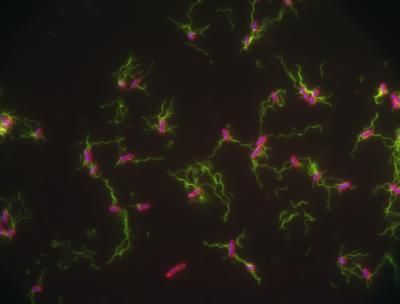Caspase-14 protects our skin against UVB and dehydration
Advertisement
Ultraviolet rays can be harmful to our skin and pave the way to the onset of skin cancers. VIB researchers connected to Ghent University have demonstrated that the caspase-14 protein whose function has been unknown up to now not only plays a role in maintaining the balance of moisture in the skin but also offers protection against UVB rays. Future strategies that increase the production of caspase-14 will open new possibilities for fortifying the skin as a barrier against all kinds of stress.
UV rays cause functional alterations in the most important components of our skin: the keratinocytes. In addition to causing normal sunburn and suppressing our immune responses, UVB damages the DNA in our cells, which can lead to cancer.
Caspases are proteins that are involved in inflammation reactions and in programmed cell death or apoptosis. In the mid-1990s, Peter Vandenabeele and his colleagues were able to isolate 9 caspase family members in mice. The properties and substrates of a number of caspases are already known. However, caspase-14 is a maverick in that it is found very specifically in the skin and is activated during the last stage of skin cell maturation. Due to the action of caspase-14, the outer epidermis of our skin contains dead cells that are released as flakes of skin.
To investigate the function of caspase-14, Geertrui Denecker and colleagues, under the direction of Wim Declercq and Peter Vandenabeele, developed knock-out mice that could no longer produce the protein. The shiny and lichenified skin of mice without caspase-14 is a sign that the composition of the skin's epidermis has been altered. The lack of caspase-14 causes defects in the processing of a protein that plays a major role in maintaining the skin's structure and balance of moisture, which can explain the skin's dehydration. But one of our skin's most important functions is to protect us against UVB radiation. The researchers in Ghent have found that the filtering action of the epidermis of mice without caspase-14 decreases dramatically.
The absence of caspase-14 has very harmful effects on the skin's protective barrier function, which results in loss of water and diminished protection against UVB. This research sheds light on a portion of the mechanisms that operate in the skin's epidermis. The identification of molecules involved in caspase-14 dependent processes could well be important to the pharmaceutical industry, which is always seeking agents that prevent sunburn and ageing of the skin.
Original publication:Denecker et al.; "Caspase-14 protects against epidermal UVB photo-damage and water loss"; Nature Cell Biology, 2007.



























































